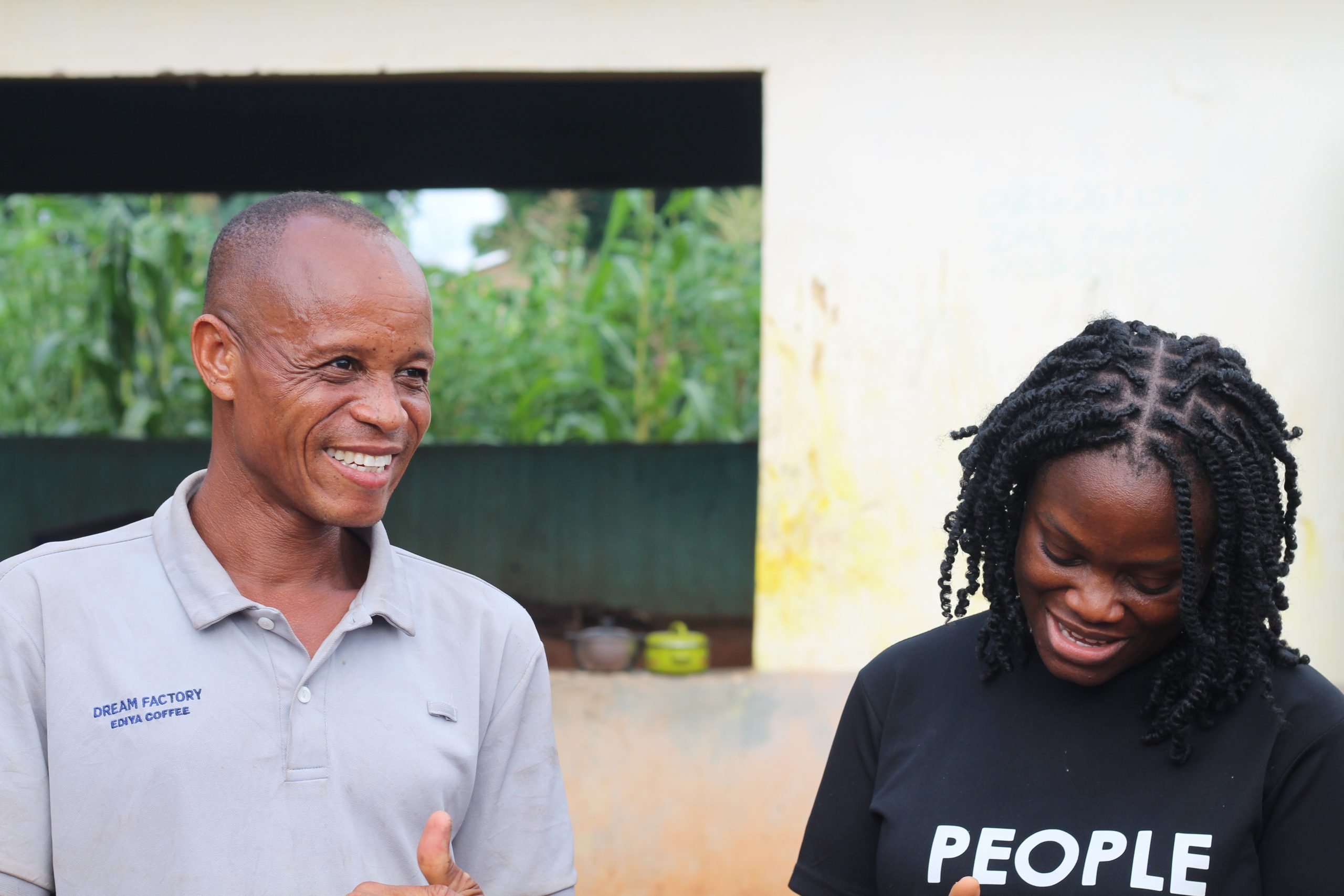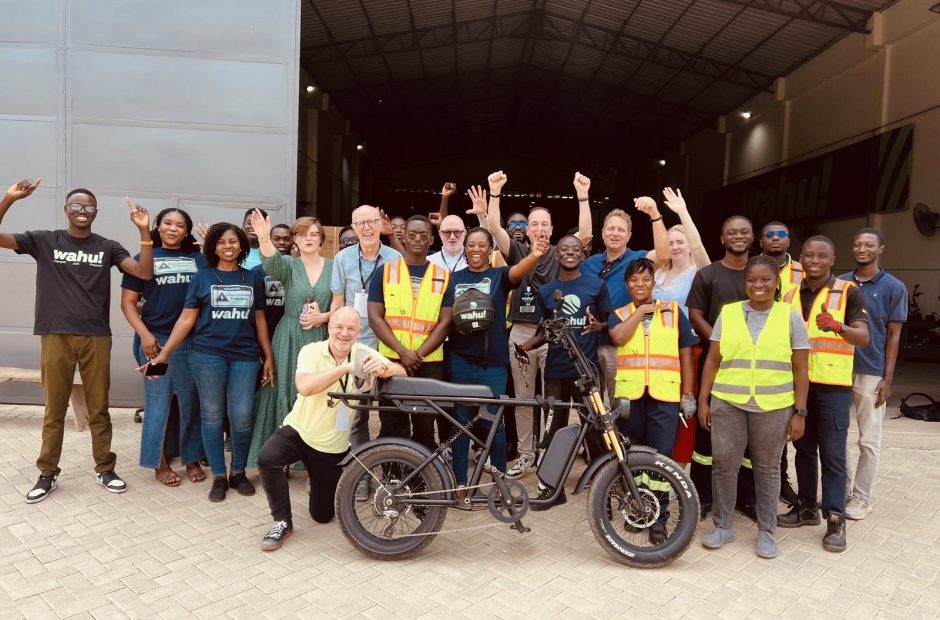We were back in Ghana to take a closer look at potential investments. Here are the results:
Starting in Accra – Meeting a Visionary
In Accra, we visited Skin Gourmet, an innovative organic skincare company founded by the impressive Violet Amoabeng.
Violet has a clear mission: she sources the majority of her raw materials locally, supporting communities in Ghana – and creates products that not only nourish the skin but are even edible. Yes, you heard that right: her cocoa scrub tastes just as good as it cares for your skin, and her raw shea butter could even be used for cooking.
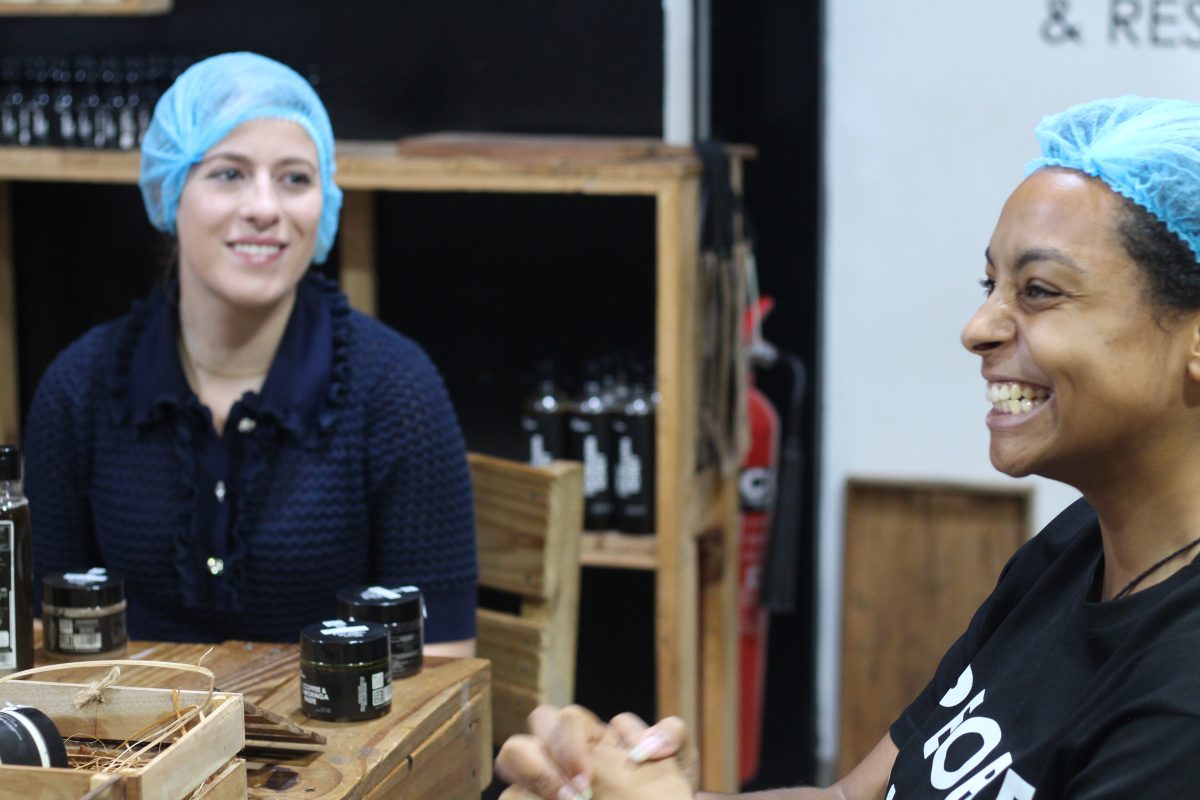
During a tour of her stylish shop, which she built in her own home, and the small manufacturing facility, we met her 25-person team – mostly young women. A powerful example of economic participation and empowerment. Our favorite? The Ghana Cocoa & Sea Salt Scrub – it makes lips silky smooth and tastes better than Nutella.
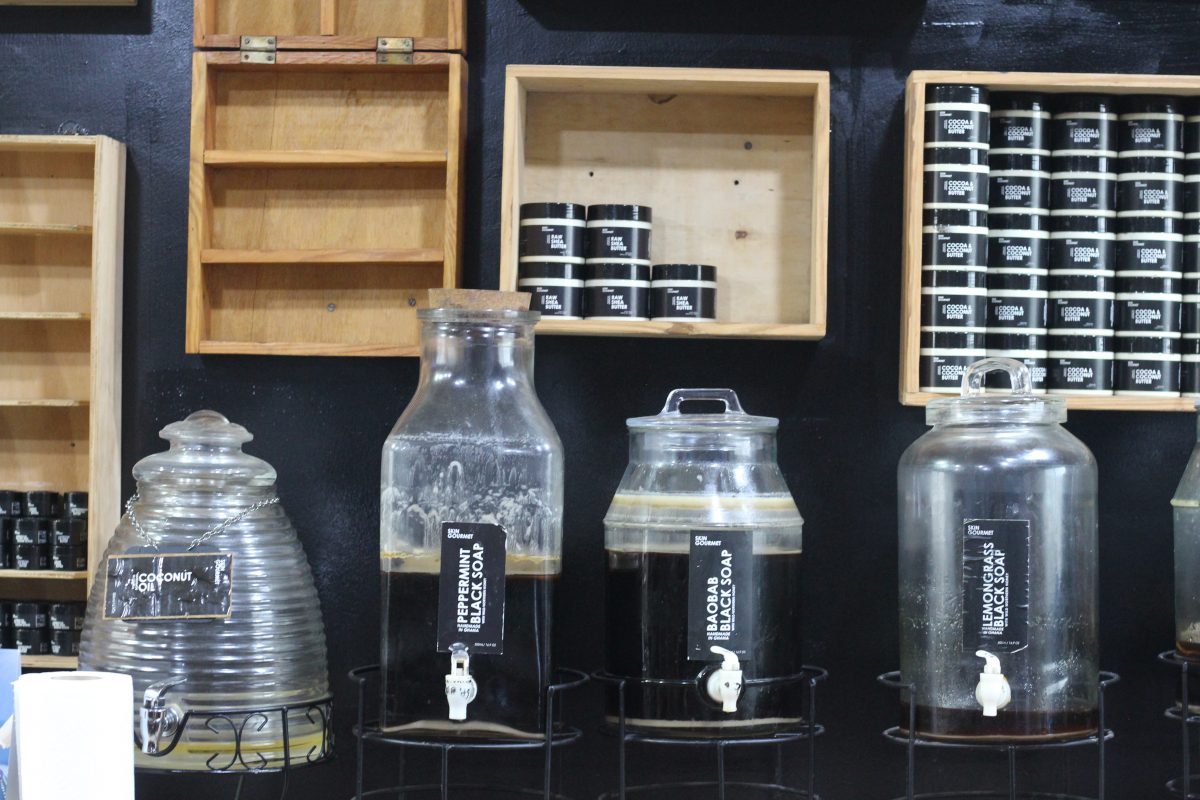
SKIN GOURMET headquarters in Accra
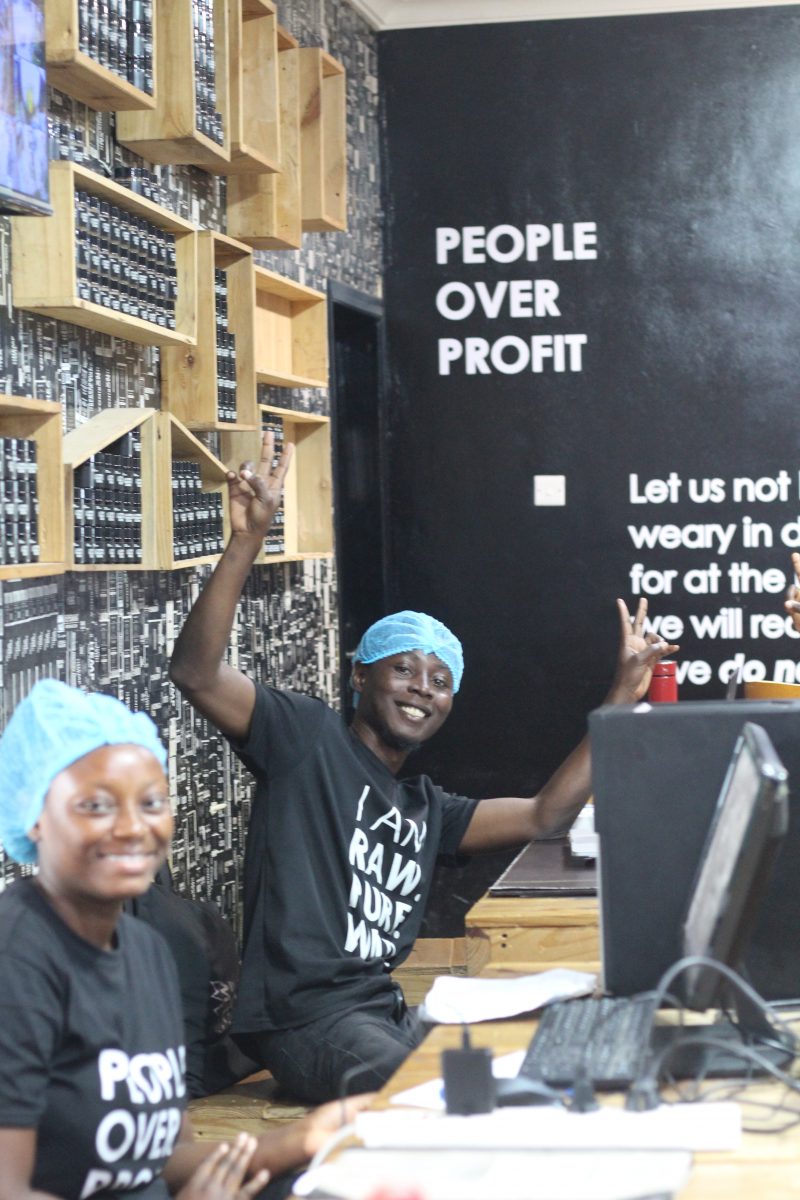
SKIN GOURMET Team working under the motto: PEOPLE OVER PROFIT
The Origin Story – From Problem to Solution
The idea for SKIN GOURMET was born when Violet returned to Ghana after studying abroad. In a rural area, she discovered a community that both produced and consumed shea butter. She realized that in many value chains for organic raw materials involving small communities or smallholder structures, producers receive only a fraction of the export value, while most of the processing takes place abroad. This deprives local communities of jobs and opportunities.
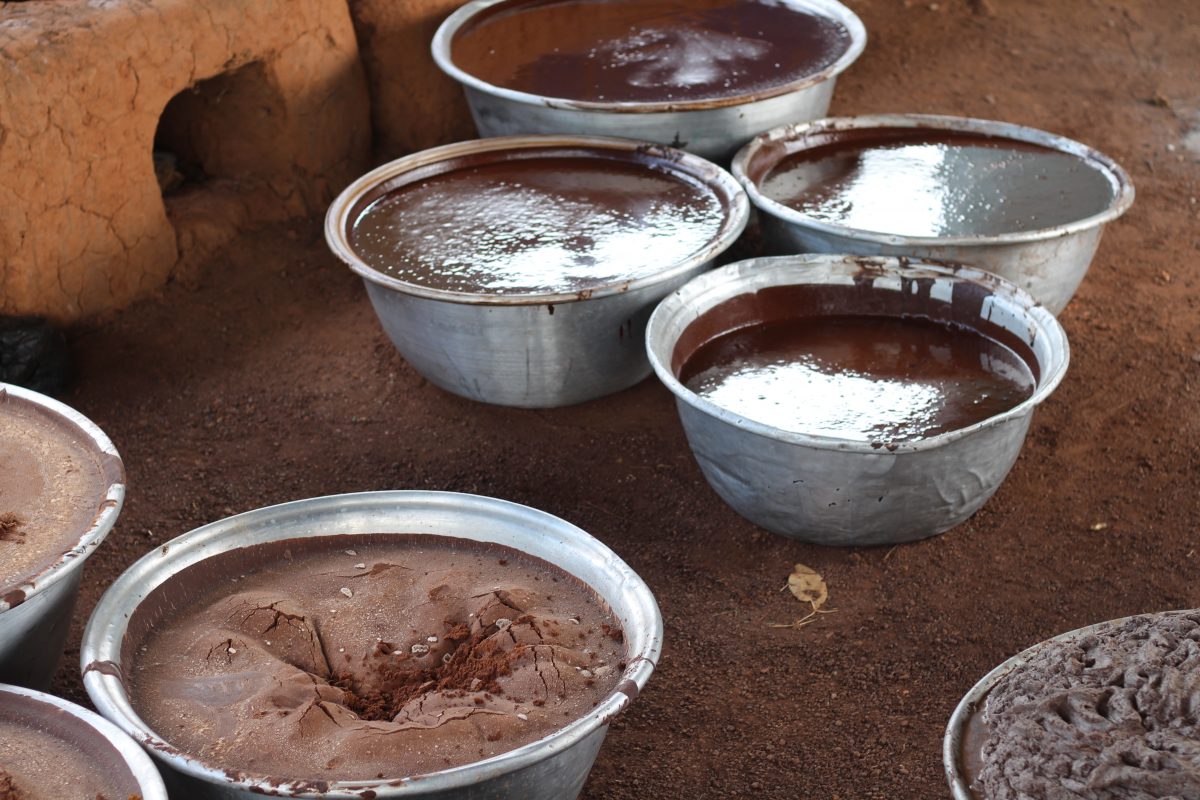
Shea Butter in different stages before its boiled
Violet wanted to change that. She founded SKIN GOURMET – a brand that develops and produces all its products entirely in Ghana and sources raw materials directly from producers, without intermediaries. This keeps the value creation within the country, creates sustainable jobs, and ensures better incomes for smallholder farmer communities.
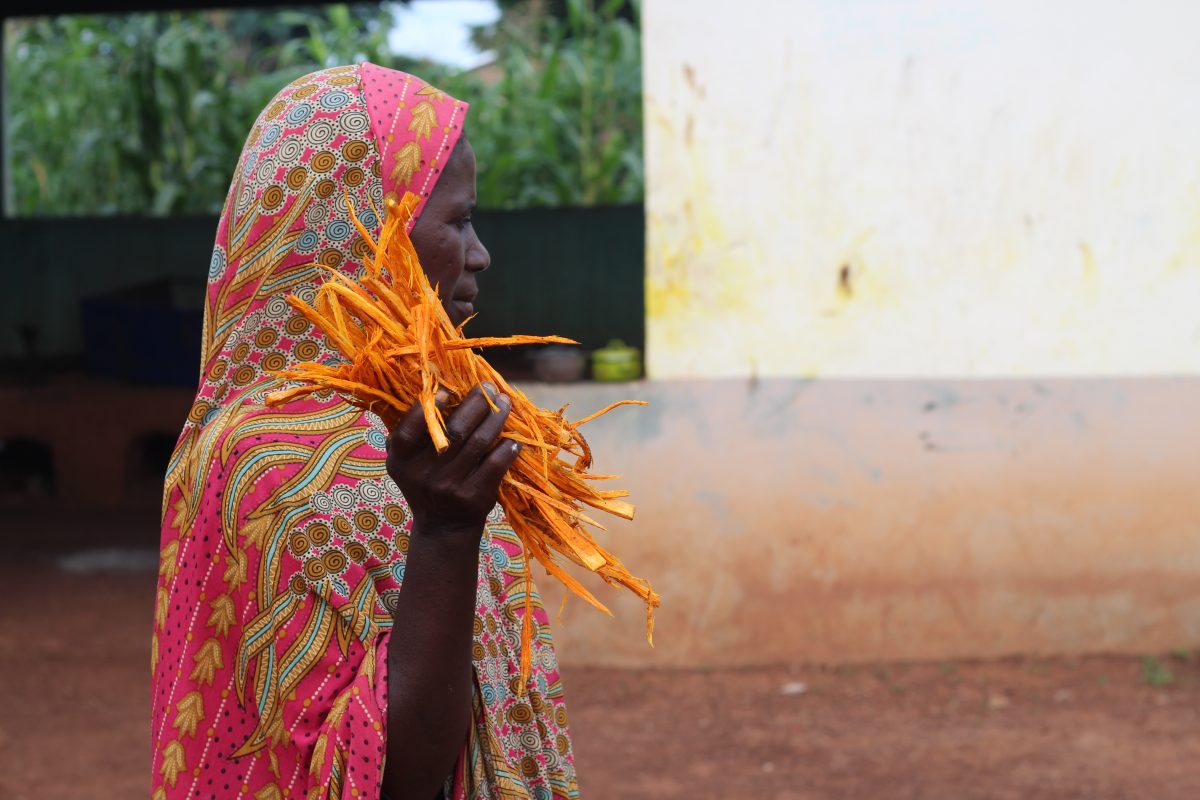
African sandalwood also called borututu which is added to the shea butter for natural yellow coloring and for its medicinal value
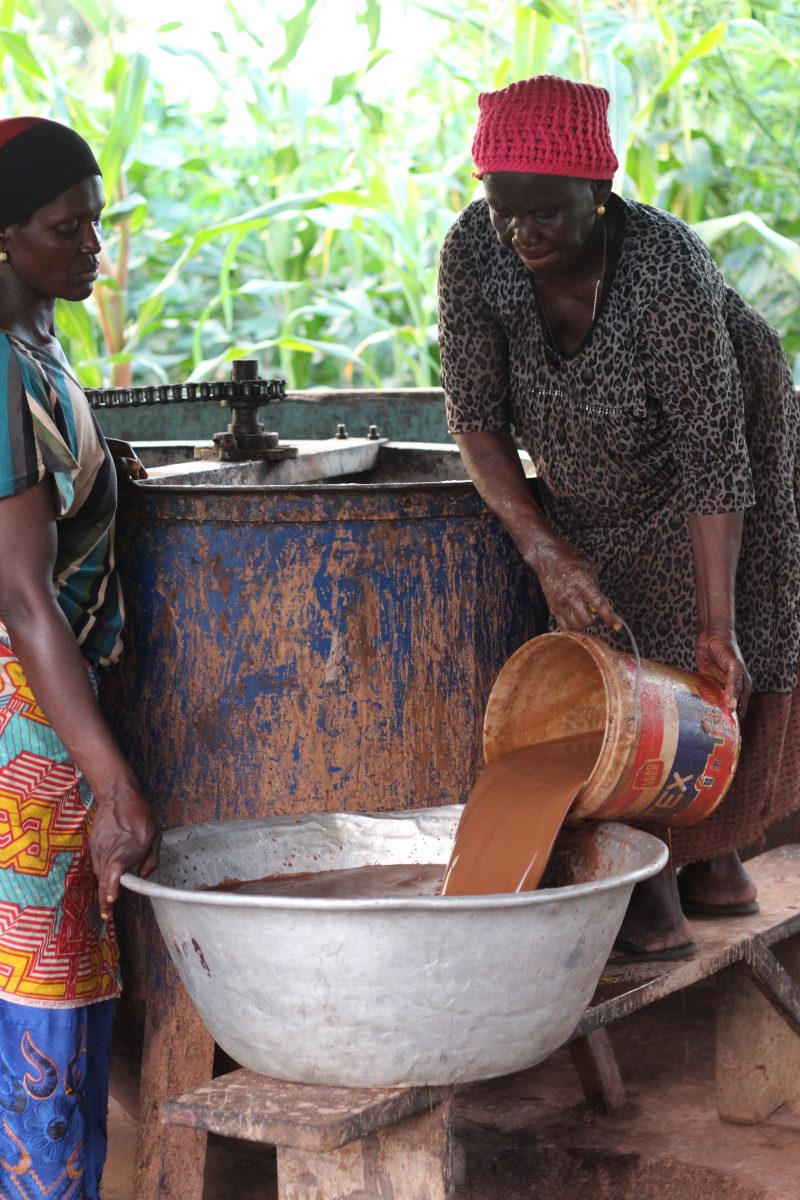
Shea butter being mixed with water ready to be boiled
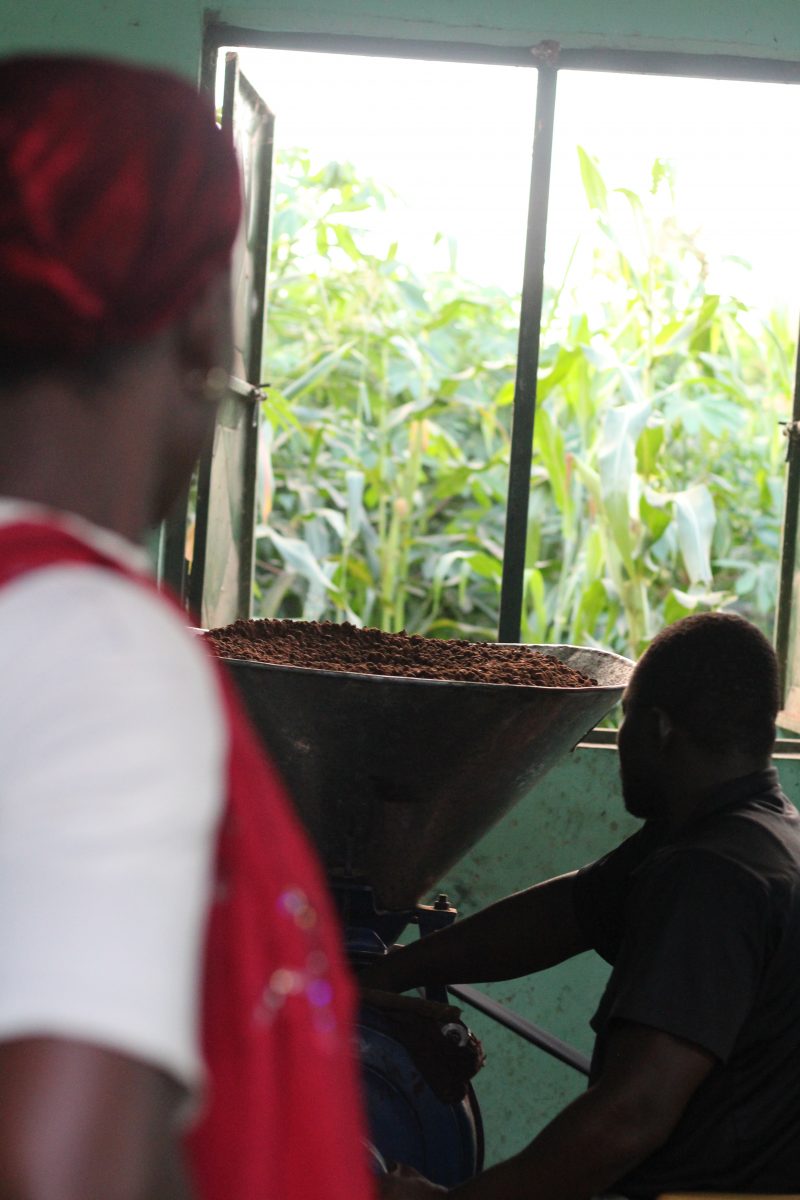
Raw roasted shea butter being grinder
Journey to Tamale – Where Shea Butter Is Made
Together with Violet, we traveled to Tamale in northern Ghana to meet the women behind Skin Gourmet’s best-selling product: raw shea butter.
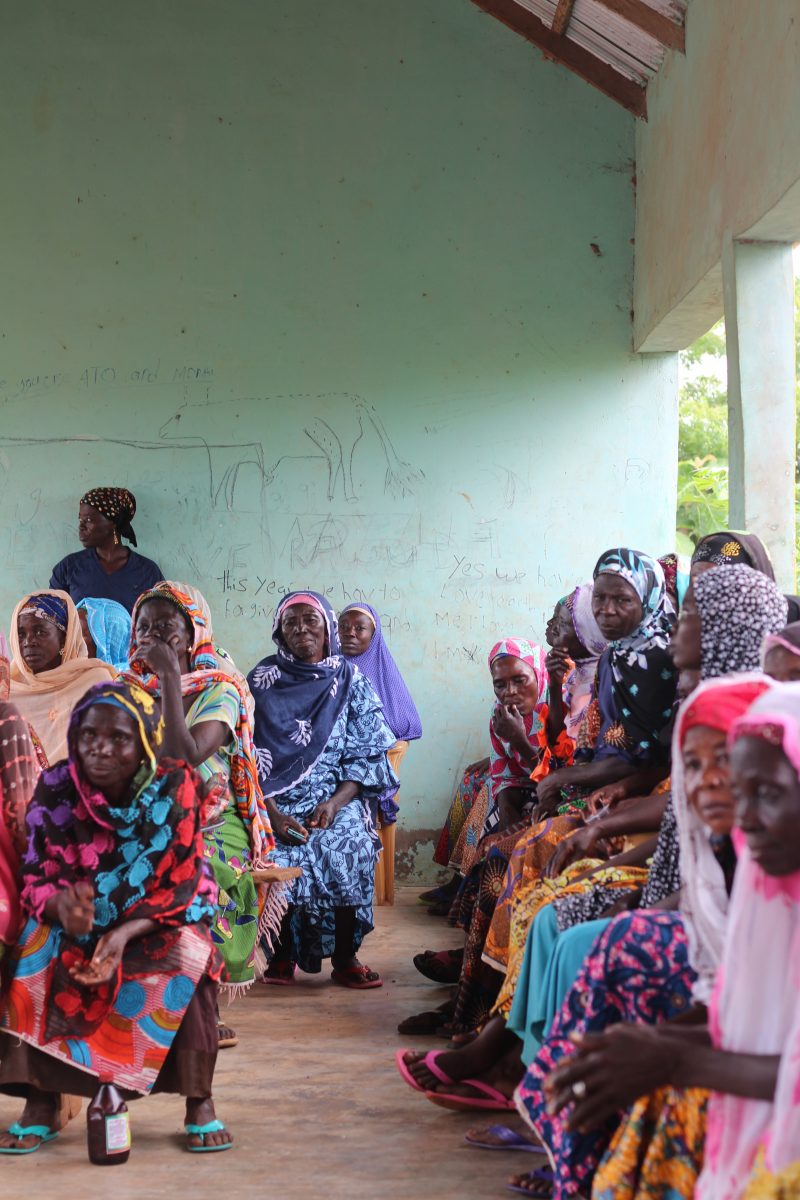
The shea butter production community consisting of 113 women
There, Violet works with a community of 113 women who produce shea butter for the international market using traditional handcrafting methods. It is not unusual in sub-Saharan Africa for women to carry out the physical labor in smallholder farming structures. In fact, women make up about 47% of the agricultural workforce in this region. We were warmly welcomed – with a traditional dance at the new production facility that Violet purchased for the community to establish a fully fledged shea butter factory.
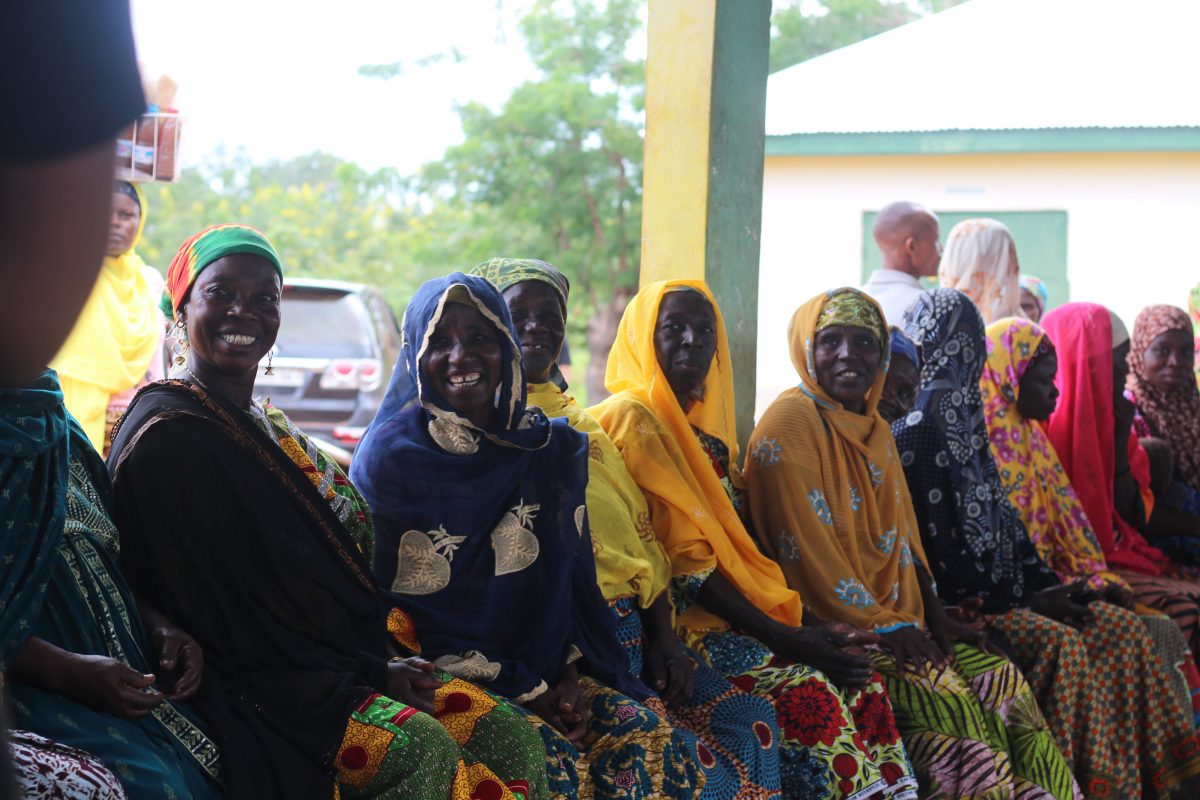
The shea butter production community consisting of 113 women
We learned that in the industry, intermediaries often take the largest share of the profits, while producers barely benefit. This is mainly because smaller operations lack the resources to obtain certifications – unlike the traders. Moreover, pure, unprocessed shea butter is rarely available in Western markets. Violet helps the women secure certifications and establish direct trade relationships – ensuring that the profit stays where it is generated.
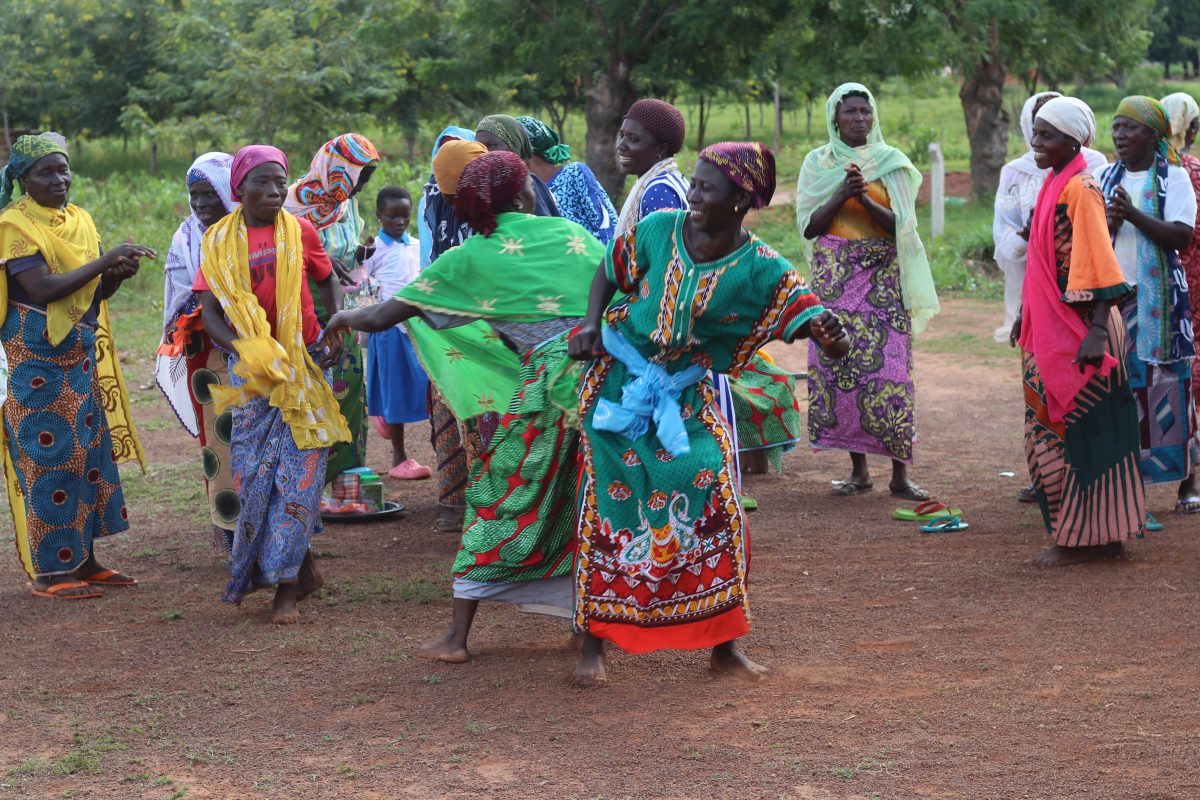
The local community welcoming us with a dance
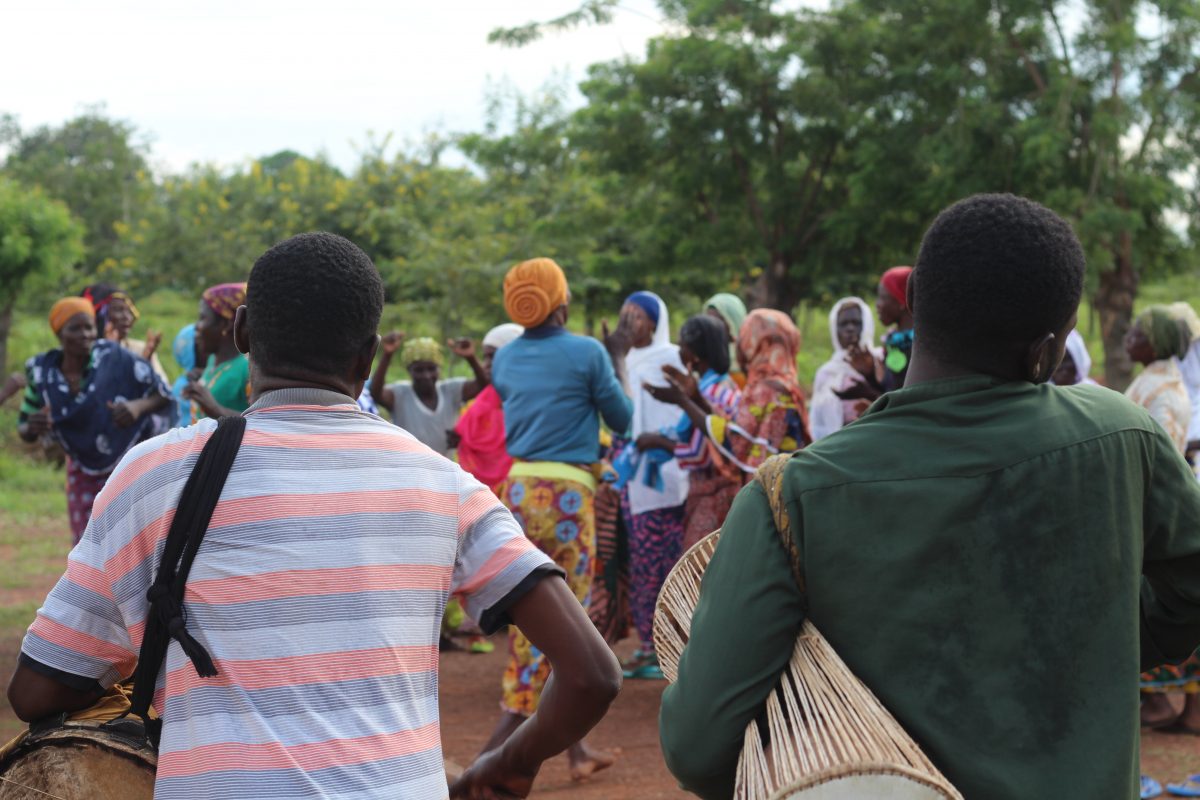
The local community welcoming us with a dance
Cooperation for Sustainable Development
On this trip, we were also joined by Charlot Magayi from Mukuru Clean Stoves, an initiative for clean, efficient cookstoves that operate without harmful charcoal. These stoves reduce smoke exposure, lower fuel costs, and protect the environment – bringing immediate benefits to rural communities.
The collaboration between Charlot and Violet aims to produce larger, more sustainable, and healthier cookstoves, enabling the women working with Skin Gourmet to process their shea butter more efficiently and safely.
The shea butter community we visited was the first with which Violet formed a partnership years ago. Today, she sources raw materials from over 40 local value chains in Ghana – including baobab oil, moringa scrubs, avocado oil, and neem oil. The certification process is now starting with the shea butter community – and all others are set to follow. This is a crucial step toward marketing the products worldwide.
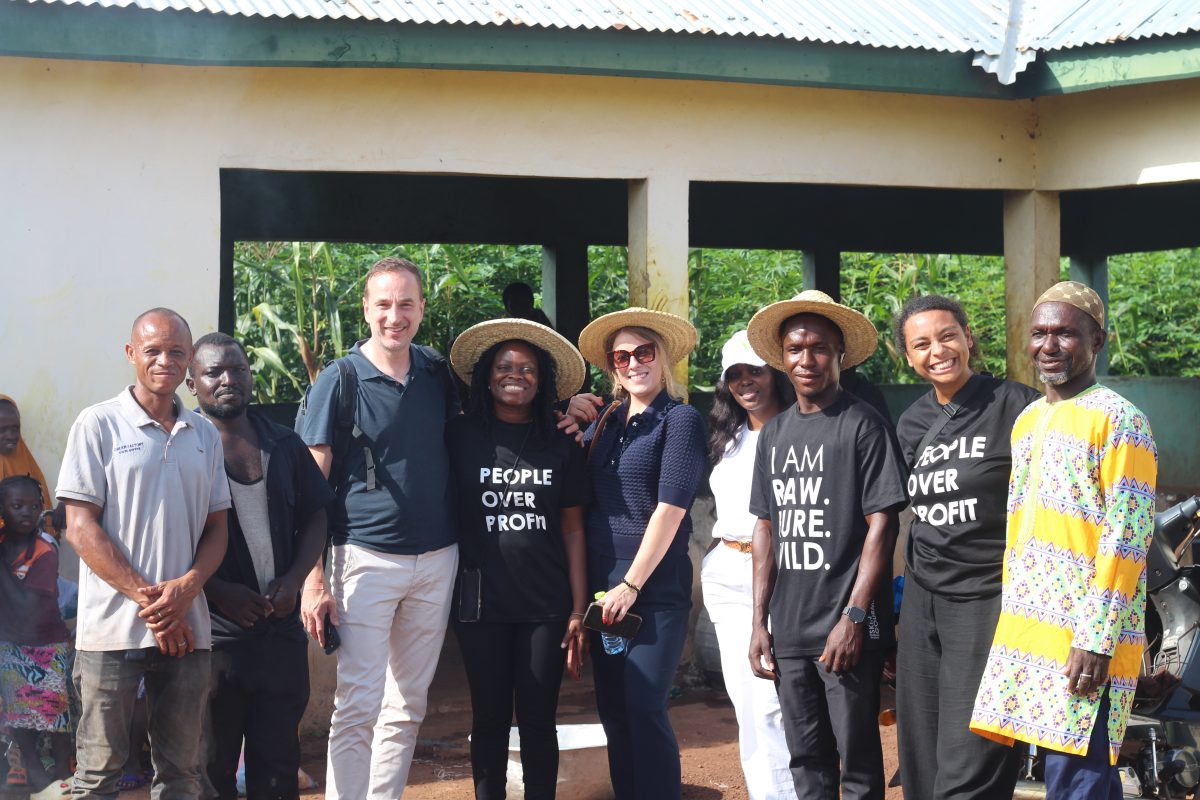
Our local shea butter production visit with Violet and her local team
Conclusion:
Violet’s work is about more than just skincare – it is a model for fair value creation, economic self-determination, and sustainable development. Her success shows that high-quality, ethically produced products can come directly from the source – while strengthening entire rural communities.
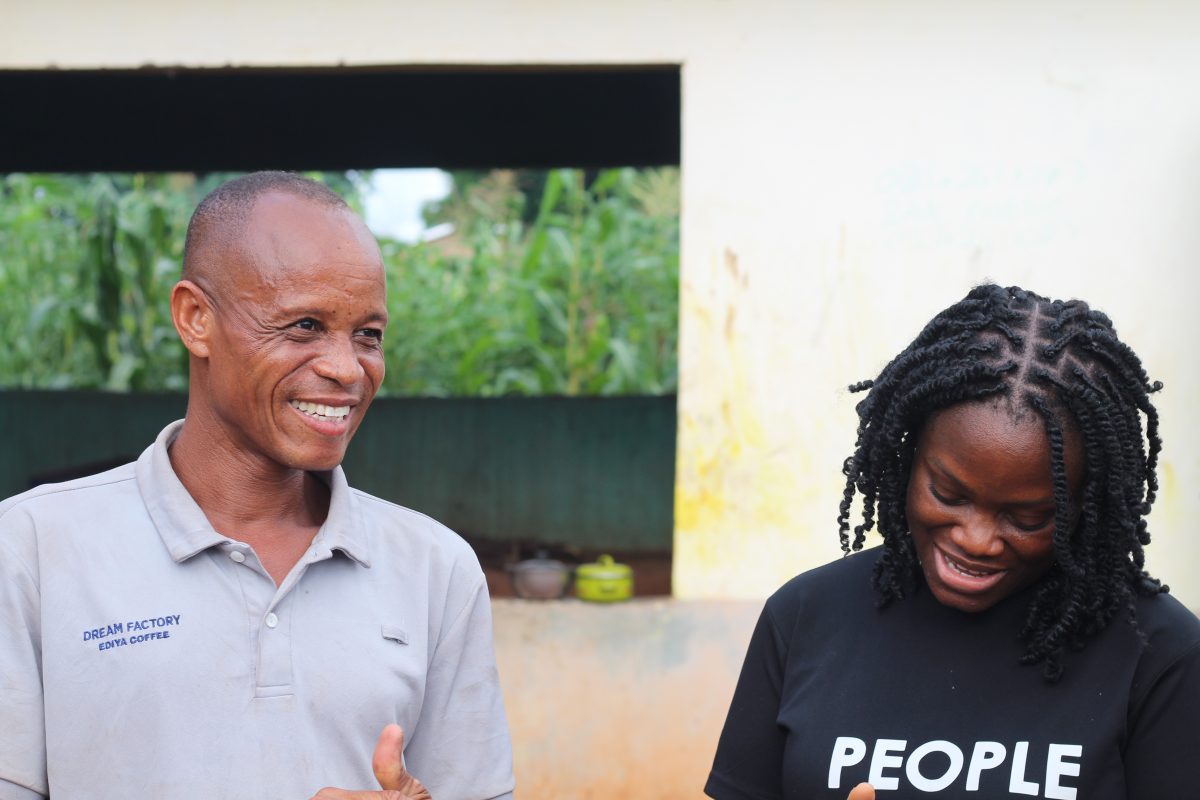
The founder Violet Amoabeng with one of her local colleagues from the shea butter production community

